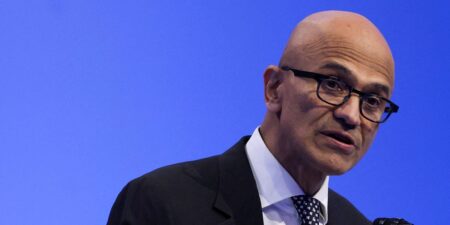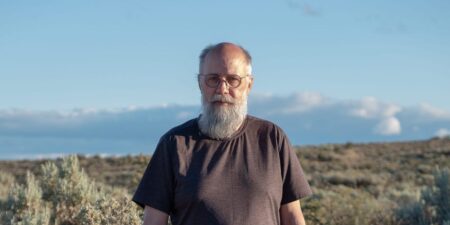Some people pursue Ph.D.s to work in academia or to attain lofty research positions. The CEO of Rivian got his so people would take him seriously.
RJ Scaringe founded Mainstream Motors — later renamed Rivian — in 2009. It took over a decade to collect capital, build manufacturing capabilities, and eventually distribute the company’s first consumer electric vehicle, the R1T.
When pitching his EV company to investors, Scaringe had a résumé perk: his Ph.D. from Massachusetts Institute of Technology. On the “Tosh Show,” Scaringe said that he figured the degree would put him in good standing in investor rooms.
“I thought, ‘I’ll need a lot of money. I don’t have any money, and if I’m going to get other people to invest money into this thing that I want to build, me having a Ph.D. from MIT or equivalent makes that more likely,'” Scaringe said.
Pitching a vehicle company is difficult, as Scaringe described on the podcast. Given the upfront capital costs to make a basic prototype, EV entrepreneurs like Scaringe are often pitching an idea more than a discreet product.
Thus, EV founders need credibility — and Scaringe didn’t want to wait decades.
“I didn’t want to go work at a car company for 20 years and earn credibility,” he said. “So I wanted to get like credibility as quickly as I could.”
For Scaringe, that came in the form of a Ph.D. in automotive mechanical engineering.
MIT is a hotbed for entrepreneurs. Notable Ph.D. alums include Intel cofounder Robert Noyce and Boston Dynamics founder Marc Raibert. Amar Bose of Bose Corporation got his Sc.D. from the institution.
When picking his graduate institution, Scaringe had two options: MIT or Stanford University. Having graduated first in his class at Rensselaer Polytechnic Institute, Scaringe said he had plenty of options and was being courted by various programs.
“It was like being recruited for a nerd sports team because MIT offered me this amazing role, Stanford offered me this amazing role,” he said.
Scaringe accepted his offer from Stanford and enrolled for a day before switching over to MIT.
“I actually preferred the program at MIT,” Scaringe said. “The reason I really liked what MIT had is that they had an automotive-specific program and a lab built around automotive, and I knew I wanted to start what eventually became Rivian.”
Scaringe called his reasoning for getting a Ph.D. “wonderfully naive” — but “it worked.”
Read the full article here
















